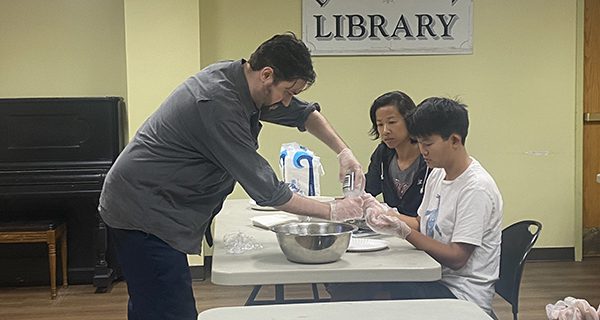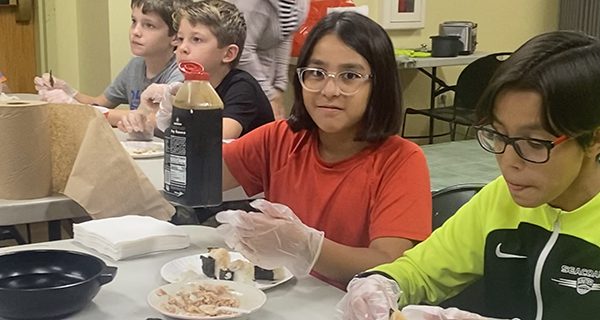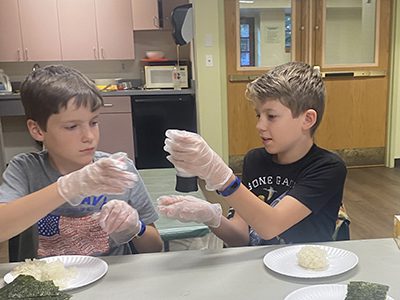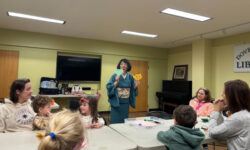By Lauren Schiavone
Hometown Weekly staff
The Dover Town Library (DTL) recently hosted its first cooking event, post-pandemic, as Executive Director Yuko Handa of the Japan Society of Boston enlightened patrons on the art of onigiri making. Event-goers were connected virtually, with some participating at home, having been granted access to the link via the library. Others pulled up a chair in the community room and watched as Handa appeared onscreen, guiding them step by step to make onigiri.
Also known as omusubi or nigirimeshi, onigiri is not sushi. Sushi is made of small pieces of fish and usually vegetables, such as cucumbers or carrots, with flavored sushi rice. Onigiri has no initial flavor and is formed into a triangle or rectangle shape. Handa showed that there are multiple fillings, including umeboshi, kombu, and salmon. Foodies were instructed to use saran wrap and wet their fingers as they worked with sticky rice. To get a rounded, cohesive shape, Handa turned the rice and patted down the wrap. Handa showed how to sprinkle salt onto the wrap, spooning rice into the palm of her hand, and then wrapping nori seaweed on the outside.
It was then the attendees’ turn to create. They wet their fingers with water and formed the rice. Once they quickly got the hang of it, they added tuna with Kewpie mayonnaise (traditional Japanese mayo that has a more eggy, umami flavor, as opposed to the tangy American variety) as filling. The aroma of warm rice and fresh nori filled the room.
Handa demonstrated that there are endless possibilities for extras to make the onigiri unique. For example, she added cheese and explained a spin-off of onigiri is a bento box. Prepping food for her kids, Handa uses cupcake liners to space out the foods. Being mindful of colors and their significance (they “eat with their eyes,” she explains), she adds green vegetables and colorful fruits to the dish.
Having successfully taken their first steps into the world of onigiri-making, attendees finally tasted their meals. The option to customize filling and flavor meant that there were no picky eaters to be found — some were even snacking on nori after finishing their work.
To say the least, Handa’s mission to broaden their cultural horizons was a success.
More information on programming and the Japan Society of Boston can be found at www.japansocietyboston.org.




























